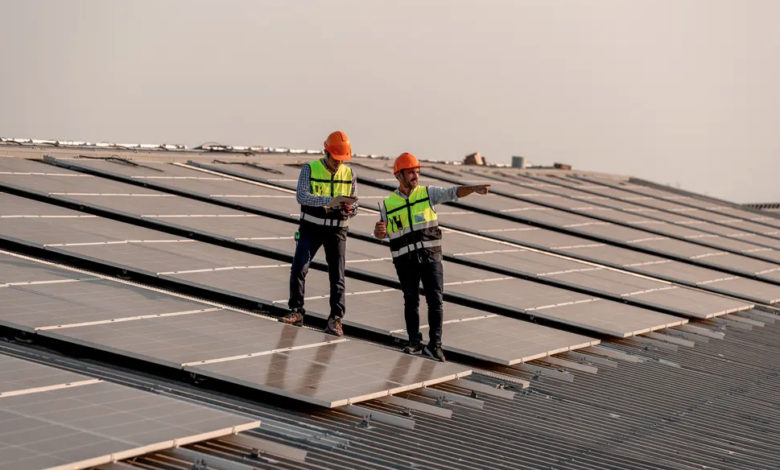Working in photovoltaics: 800,000 employed in 2023, 1mln in 2025
Working in photovoltaics, growing employment but need qualifications
(sustainabilityenvironment.com) – What opportunities does the European photovoltaic industry offer today? And what skills will be most in demand in the future? To answer is the new report EU Solar Jobs presented yesterday by the association SolarPower Europe. The document, now in its third edition, analyses the sector and reviews its short-term projections. Previous estimates predicted 1 million jobs in photovoltaics by 2030, but between new industrial policies and the growth of the energy transition, the deadline could approach. The report’s authors believe it is likely that as early as 2025 solar employment will cut the target of one million workers, reaching 1.2 million jobs by 2027.
And today? Today there are 648,000 people working in photovoltaics (as of the end of 2022) against 466,000 active in 2021. In other words, in just one year, the EU’s solar workforce grew by almost 200,000 people, a clear reflection of market trends. To the current trends, the section would have to close in 2023 with 800.000 workers.
The Polish photovoltaics gives jobs to 150 thousand people
As in previous years, in the value chain the installation segment continues to grow and dominate the share of solar jobs, employing 84% of workers in photovoltaics. Plant management and maintenance accounted for 8% of the workforce, while high-value strategic jobs in manufacturing accounted for over 7%. In geographical terms, Poland is at the top of the EU ranking for job creation in photovoltaics (150,000 employees). Spain and Germany follow, each with about 100,000 solar workers.
read also Jobs in renewable energy, towards 13mln of employment
A skills gap for the future
Although the analysis reveals significant growth trends in solar employment, several challenges remain open. Starting with the skills gaps. “Looking at the skills gap in the solar industry, we are starting to address the issue of quantity and now we also need to double our efforts on quality,” commented Walburga Hemetsberger, CEO of SolarPower Europe. “Citizens and businesses must have the certainty that their photovoltaic project is realized, installed, and maintained by properly trained and reliable professionals”.
For this reason, the association shared in the report 7 policy recommendations to ensure the solar workforce that Europe needs:
- National assessments of skills gaps.
- Communication campaigns and education on green jobs.
- Specialist training for relevant professionals.
- Retraining programs focused on the needs of the right transition, using the Net-Zero Industry Academies to develop training content.
- Make all energy policies skillful.
- Facilitate the free movement of workers within the EU through the cross-border recognition of competencies.
- Integrate the needs of the solar sector into existing immigration policies.






